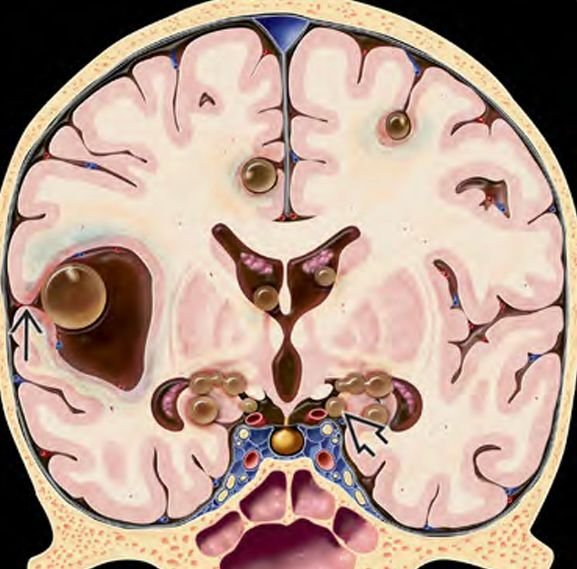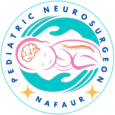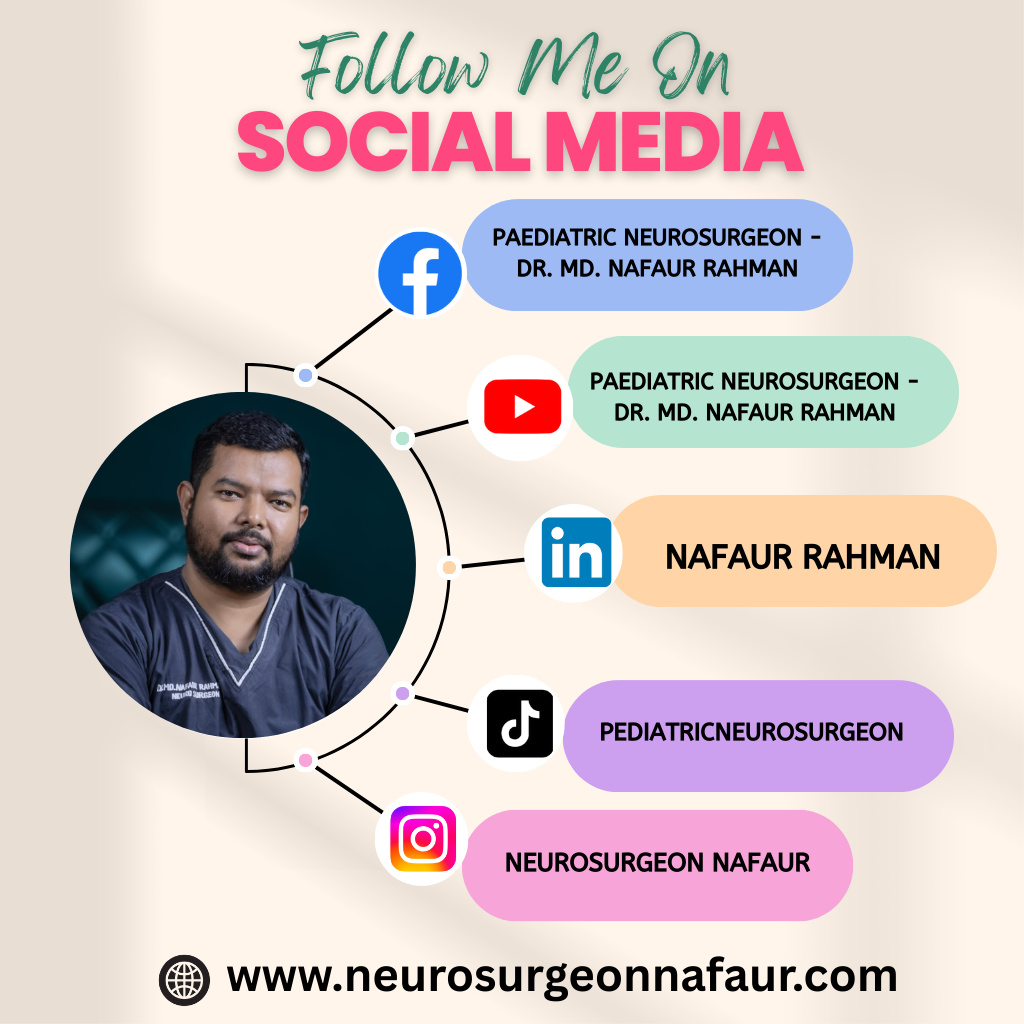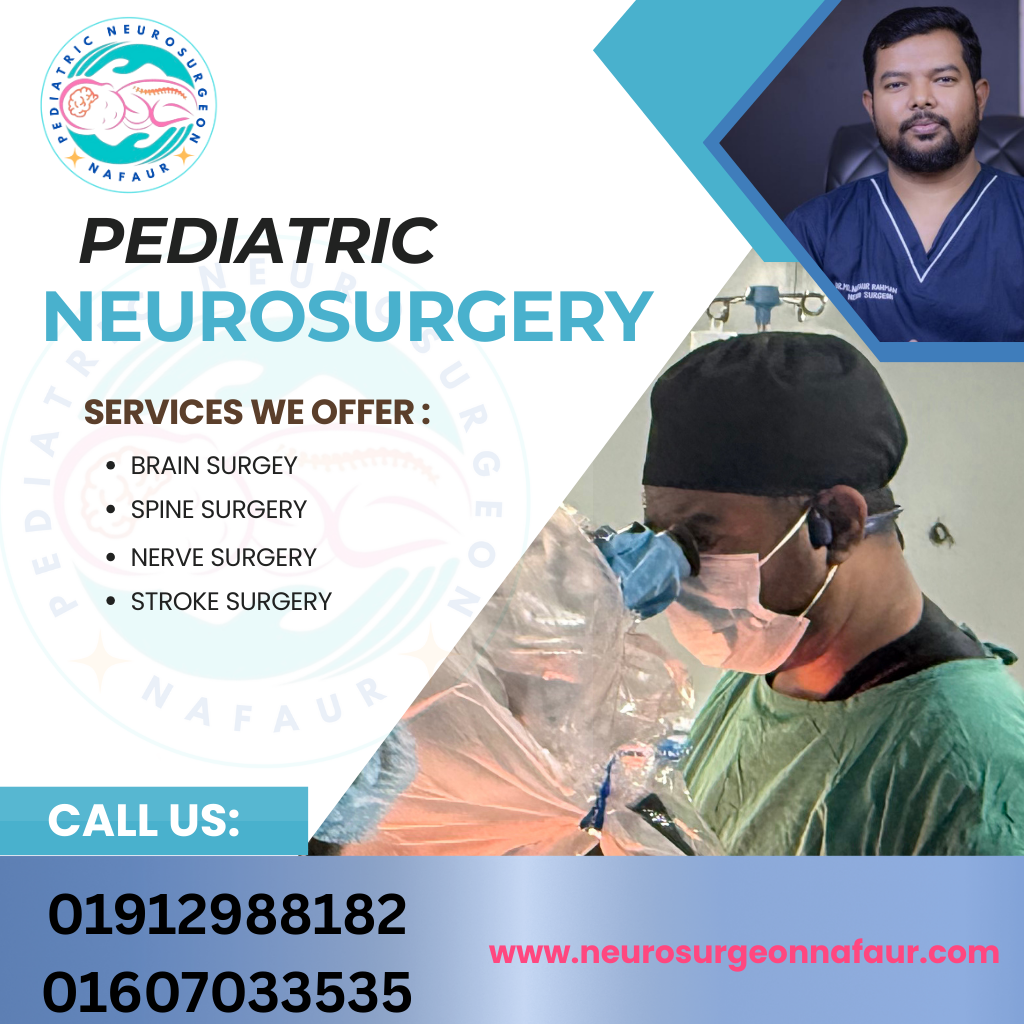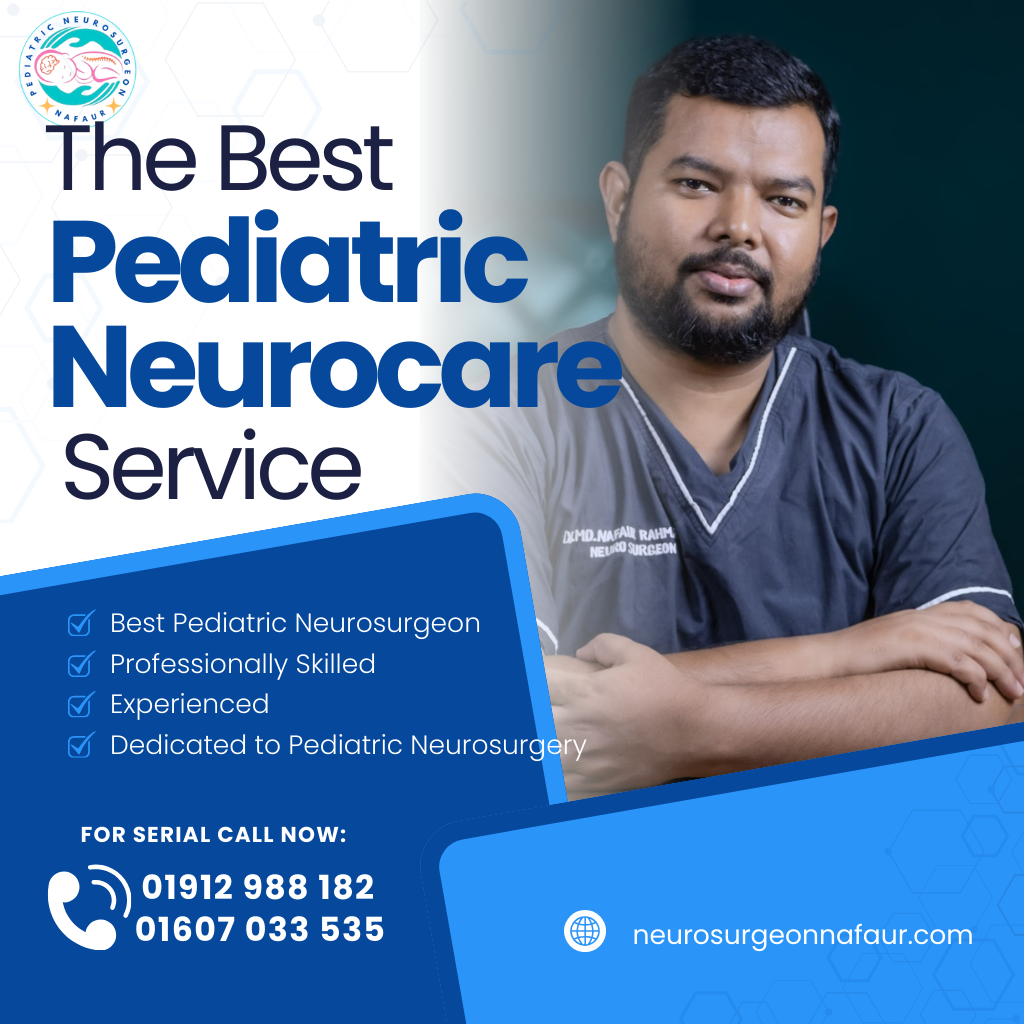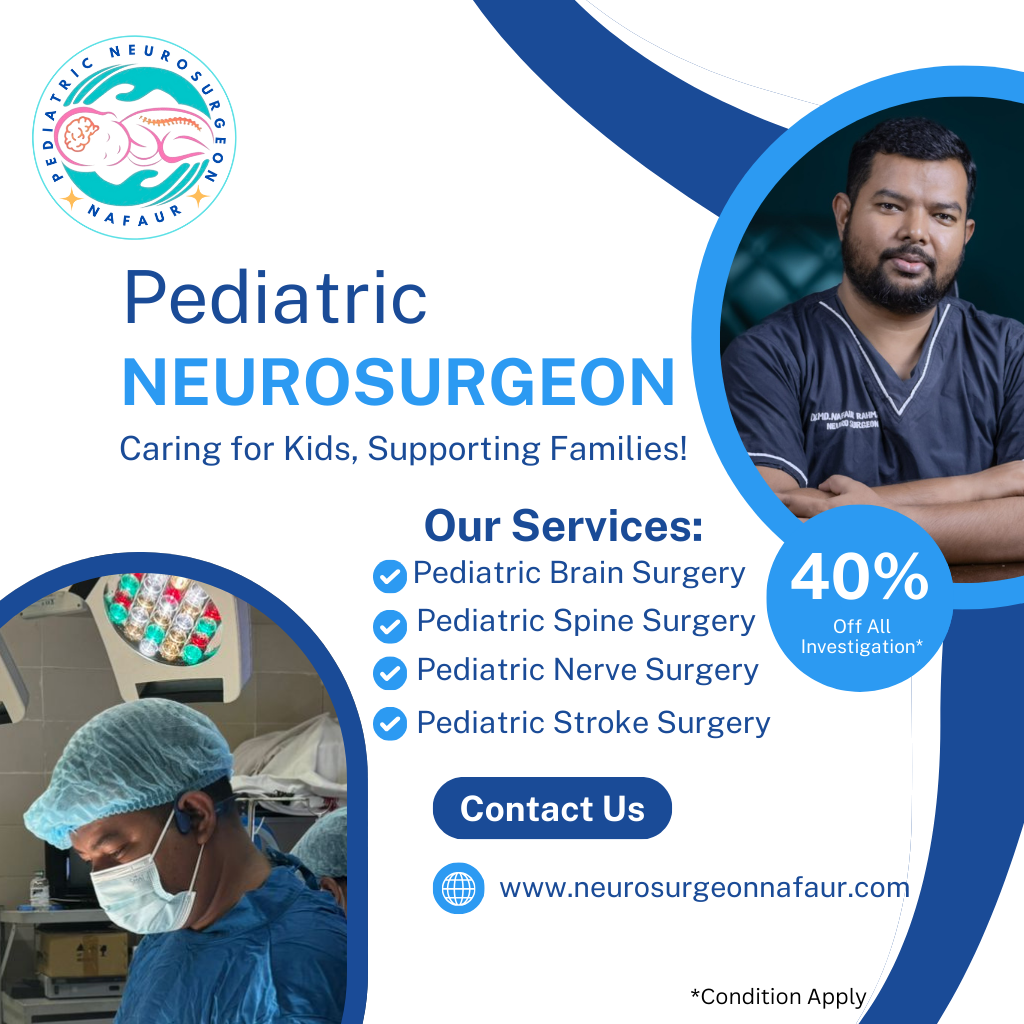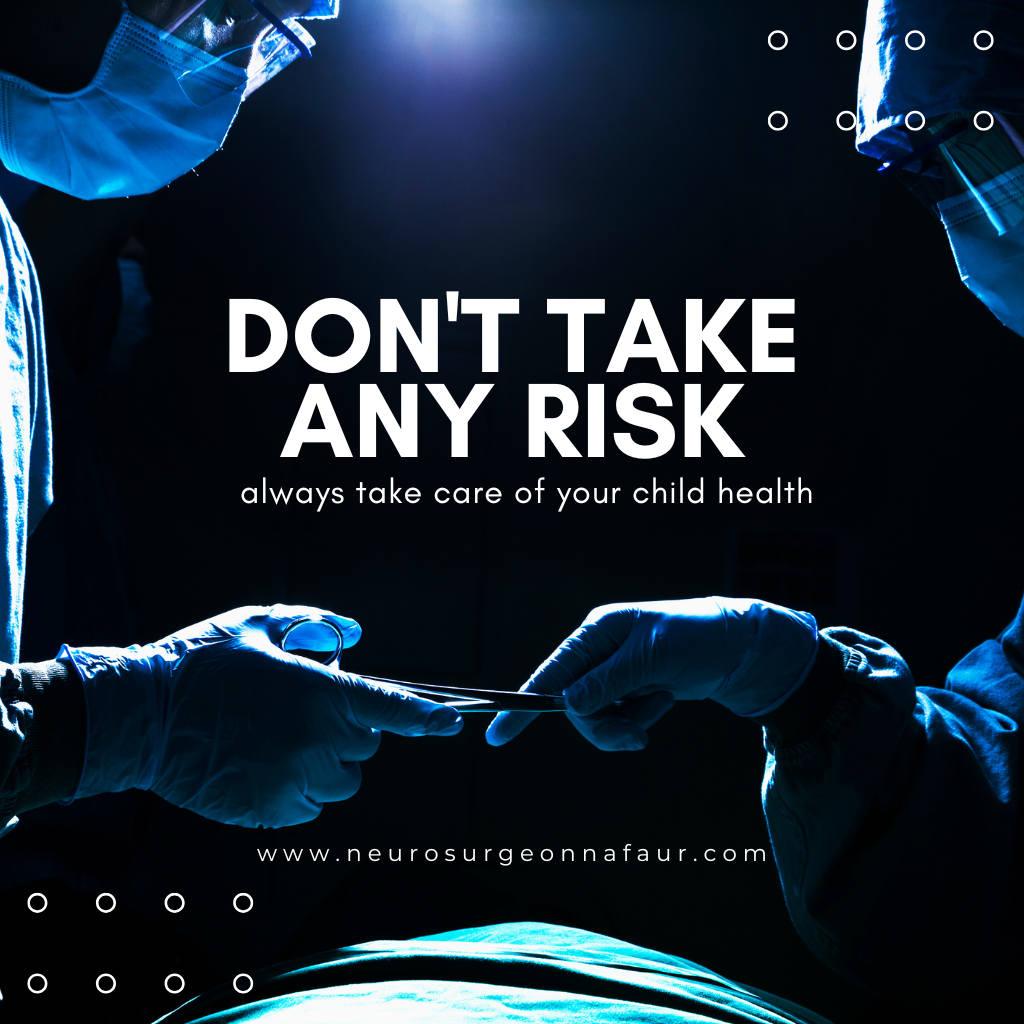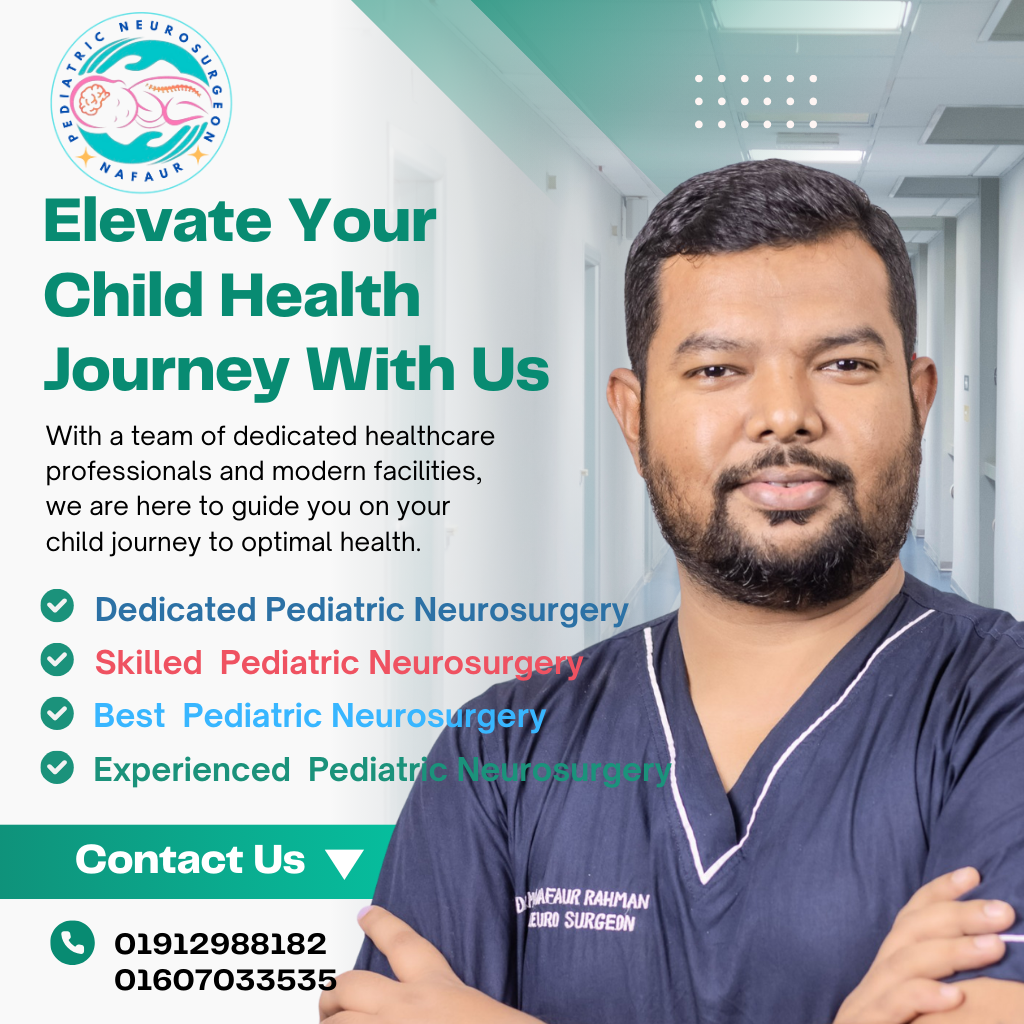Other Infections
Others Infection
Fungal and parasitic infections of the brain and spine are rare but potentially life-threatening conditions in children. These infections may affect the brain parenchyma, meninges, spinal cord, or ventricular system, and require prompt diagnosis and often surgical intervention. In Bangladesh, due to tropical climate, poor sanitation, overcrowding, and limited access to specialized pediatric neuro care, such infections are seen more frequently than in developed countries. Dr. Md. Nafaur Rahman offers comprehensive neurosurgical evaluation, advanced imaging, and precise surgical treatment for these rare but serious diseases. 🌍 Pediatric Fungal and Parasitic Neuroinfections in Bangladesh: A Public Health Challenge Bangladesh’s dense population, rural exposures, close contact with livestock, and widespread malnutrition increase the risk of parasitic (e.g. neurocysticercosis) and fungal infections (e.g. cryptococcal meningitis) in children. Many cases go undiagnosed or are treated symptomatically due to low awareness among general healthcare providers. Dr. Nafaur Rahman is committed to raising awareness, providing advanced diagnostics, and offering life-saving neurosurgical solutions for children suffering from these infections. ⚠️ Clinical Features of Pediatric Neuroparasitic and Fungal Infections Depending on the causative organism and location, symptoms may vary, but key signs include: 🌡️ Prolonged fever not responding to usual antibiotics 🤕 Persistent or worsening headache ⚡ Seizures, often focal or prolonged 🧍 Neck stiffness, back pain, or limb weakness 👁️ Vision disturbances or squint 🧠 Signs of raised intracranial pressure – vomiting, altered consciousness 🛌 Developmental delay or regression ⚠️ Spinal deformity or abscess formation (in fungal spine infections) “When a child has unexplained neurological symptoms, especially in rural or immunocompromised settings, neuroinfection must be considered early.” — Dr. Md. Nafaur Rahman 🧬 Common Fungal and Parasitic Brain/Spine Infections in Children 🦠 Parasitic Infections: Neurocysticercosis (NCC) – Most common parasitic brain infection caused by Taenia solium Toxoplasmosis – Often affects immunocompromised infants or congenital infections Cerebral Malaria – Life-threatening parasitic disease causing coma and seizures Hydatid Cyst – Rare, but dangerous cystic lesions from Echinococcus species Amoebic Brain Abscess – Caused by Entamoeba histolytica or Naegleria fowleri 🍄 Fungal Infections: Cryptococcal Meningitis – Common in immunocompromised children Aspergillus or Candida abscesses – Seen in premature babies, ICU patients Mucormycosis (black fungus) – Rare but aggressive in post-COVID or diabetic children Fungal spondylodiscitis – Fungal infection of the spine causing back pain, fever, deformity 🧪 Diagnosis of Pediatric Fungal and Parasitic Neuroinfections Dr. Nafaur Rahman ensures timely and accurate diagnosis using specialized imaging and laboratory support: 🧲 MRI Brain/Spine with Contrast – Best for detecting cysts, abscesses, or hydrocephalus 📸 CT Scan – Detects calcified lesions in NCC or hydatid cysts 💉 CSF analysis – Detects fungal elements, high pressure, eosinophilia 🔬 Serological Tests – ELISA for cysticercosis, toxoplasmosis 🧪 Fungal cultures, India ink staining, and PCR tests 🧫 Histopathology – From surgically removed tissue or biopsy for fungal or parasitic confirmation 🛠️ Treatment Approach 💊 Medical Management: Anti-parasitic drugs – Albendazole for NCC, Pyrimethamine for toxoplasmosis Antifungal therapy – Amphotericin B, fluconazole, voriconazole Steroids – To reduce brain inflammation Anti-epileptic drugs – For seizure control Anti-malarials – In cases of cerebral malaria Anti-edema therapy – Mannitol or hypertonic saline for raised ICP 🧠 Neurosurgical Interventions: Surgery may be required in the following scenarios: Hydrocephalus – Managed with VP shunt or endoscopic third ventriculostomy (ETV) Large abscesses or cysts – Stereotactic aspiration or microsurgical excision Spinal compression – Decompression and drainage of fungal abscess or spondylodiscitis Cystic brain lesions – Removal of hydatid or giant NCC cysts Biopsy – For diagnostic clarity when infection mimics tumors “Surgical treatment is often curative in localized parasitic or fungal CNS lesions when medical therapy alone fails.” — Dr. Md. Nafaur Rahman 🔁 Follow-Up and Long-Term Care Long-term management is crucial, especially in children who’ve had seizures, hydrocephalus, or developmental delay: 🧑⚕️ Regular MRI/CT follow-up 💊 Continued antiepileptic therapy 🧒 Neurodevelopmental support 👨⚕️ Multidisciplinary care with pediatrics, infectious disease, and rehab team 🧼 Public health education on sanitation and food safety 🚨 Complications if Left Untreated If fungal or parasitic infections are not treated in time, they can lead to: ⚠️ Permanent neurological deficits ⚡ Chronic seizures or epilepsy 🧠 Obstructive hydrocephalus 🛌 Paralysis or spinal deformity ⚰️ Coma or death in severe cases 👨⚕️ Why Choose Dr. Md. Nafaur Rahman? 🧠 National expert in complex pediatric neuroinfections 🏥 Operates at Bangladesh’s top neuroscience institute (NINS) 🔍 Advanced skills in microsurgical and endoscopic brain/spinal infection surgery 🤝 Collaborates with infectious disease specialists for comprehensive care 🧒 Committed to child-focused, holistic neurosurgical recovery 📞 Contact Dr. Nafaur Rahman for Expert Pediatric Neuroinfection Care Dr. Md. Nafaur Rahman Assistant Professor, Pediatric Neurosurgery, NINS Chief Consultant, Bangladesh Paediatric Neurocare Centre 📱 For Serial/Appointment: 📞 01912988182 | 📞 01607033535 🌐 Website: www.neurosurgeonnafaur.com
Common Types



